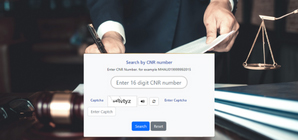Section 138 Demystified : Key Facts Every Business Owner Should Know
Posted On : July 12, 2023

Table of Contents
Introduction
As a business owner, it's crucial to have a comprehensive understanding of the legal framework that governs your operations. One important aspect of business law that you should be familiar with is Section 138 of the Negotiable Instruments Act, 1881. This section deals with the dishonor of cheque for insufficiency of funds in the account. In this article, we will demystify Section 138 and outline the key facts that every business owner should know.
Meaning and Scope of Section 138
Section 138 of the Negotiable Instruments Act establishes a legal recourse for holders of dishonored cheques due to insufficient funds. It provides a mechanism for the recovery of dues by treating dishonor of cheques as a criminal offense rather than a mere civil dispute. This section applies to both individuals and businesses, making it essential for business owners to understand its provisions.
Essential Elements of Section 138
To initiate legal proceedings under Section 138, certain elements must be satisfied:
Existence of a Debt: There must be a legally enforceable debt or liability owed by the drawer of the cheque to the payee.
Issuance of Cheque: The cheque should have been issued for the discharge of a debt or liability. It must be drawn on an account maintained by the drawer with a bank.
Insufficient Funds: The cheque must have been dishonored due to insufficient funds in the drawer's account.
Legal Notice: The payee should send a legal notice to the drawer within 30 days of dishonor demanding payment of the cheque amount.
Non-payment within 15 days: The drawer must fail to make the payment within 15 days of receiving the legal notice.
Key Features of Section 138
The following are some of the key features of Section 138 of the Negotiable Instruments Act;
Criminal Liability and Punishment
Under Section 138, the dishonor of a cheque is considered a criminal offense. If the court is satisfied with the evidence presented, it may award imprisonment of up to two years or impose a fine that may extend to twice the amount of the cheque, or both. It is important to note that imprisonment is a potential consequence, which emphasizes the seriousness of the offense.
Jurisdiction and Legal Proceedings
Section 138 cases should be filed in the appropriate court within one month of the expiry of the 15-day period mentioned in the legal notice. The case must be filed in the court where the payee's bank is situated. This provision ensures that legal proceedings take place in the jurisdiction most relevant to the case.
Role of the Banks
Banks play a crucial role in Section 138 cases. They are required to provide the necessary information and assistance to the court and the payee. Banks are also expected to maintain accurate records of the account holder's transactions, which can be used as evidence during the legal proceedings.
Legal Protection for Business Owners
Section 138 provides a level of protection to business owners by discouraging the issuance of cheques without sufficient funds. It establishes a legal framework that ensures timely payment and deters fraudulent practices. Business owners should be vigilant when accepting cheques and promptly initiate legal action in case of dishonor.
Arbitration and Settlement
Section 138 cases can be resolved through arbitration, provided both parties mutually agree to this alternative dispute resolution method. Arbitration can offer a quicker and cost-effective way to settle disputes, allowing business owners to avoid lengthy court proceedings.
Timelines and legal notice requirements
It is essential to adhere to the timelines specified under Section 138. The legal notice demanding payment must be issued within 30 days from the date of dishonor, and the drawer must make the payment within 15 days of receiving the notice. Failure to comply with these timelines may impact the enforceability of the legal remedies available.
Civil remedies and alternative options
Apart from filing a criminal complaint under Section 138, the payee can also explore civil remedies available under the law to recover the due amount. The payee may initiate a civil suit for recovery or approach an arbitration process if a valid arbitration agreement exists between the parties.
Conclusion
In conclusion, Section 138 of the Negotiable Instruments Act, 1881, is a vital legal provision that business owners should be familiar with. By understanding its key elements and implications, business owners can protect their interests, ensure timely payment, and take appropriate legal action in case of dishonored cheques and cheque bounces in India. Being aware of the legal remedies available under Section 138 empowers business owners to navigate the complexities of financial transactions more effectively.
























